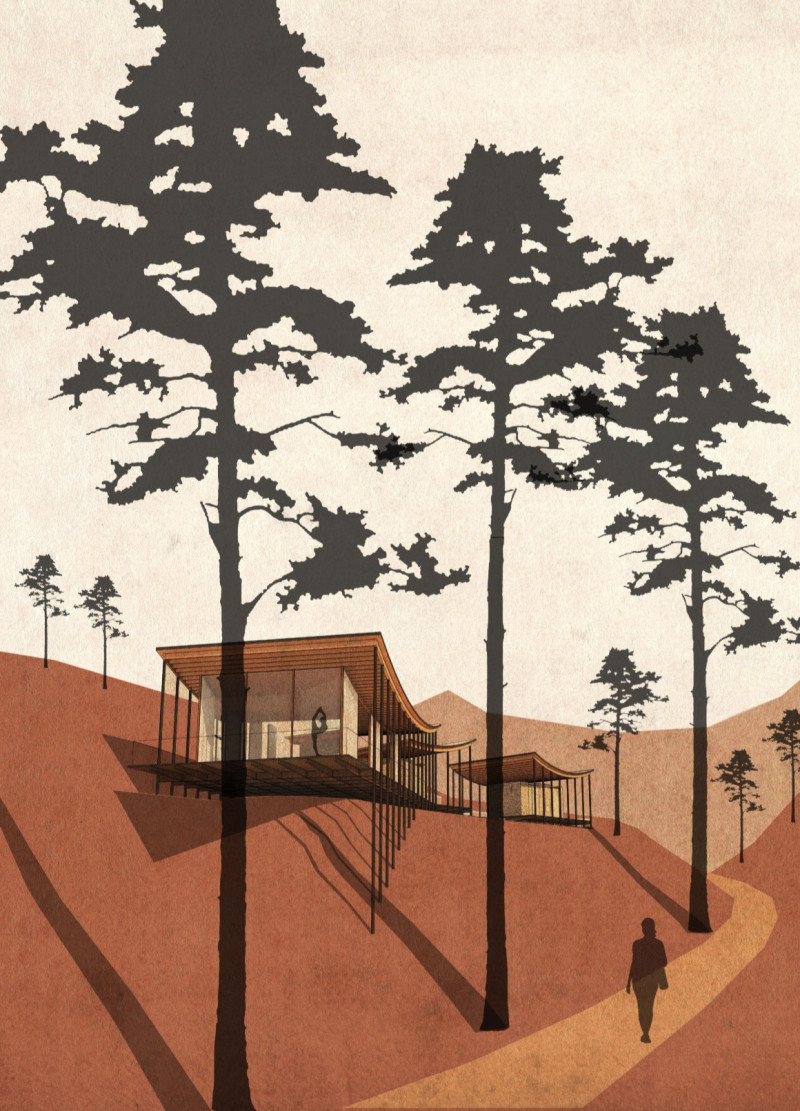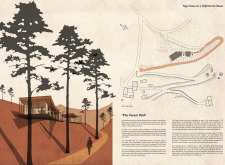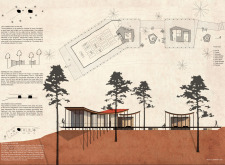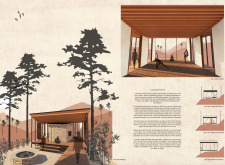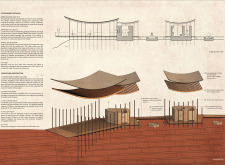5 key facts about this project
Unique integration with the environment is a crucial aspect of the Yoga House. The building’s form is elevated on slender stilts, reducing its ecological footprint while providing unobstructed views of the Serra da Estrela mountains. This elevation not only protects the landscape but also enhances natural light and ventilation within the space. The extensive use of glass walls in the primary yoga studio creates a seamless transition between indoor and outdoor environments, fostering a sense of peace and tranquility for users.
A central feature of the project is the yoga studio, which is thoughtfully designed with a cantilevered ceiling that mirrors natural shapes. This design approach enhances the spatial experience, promoting a flow conducive to yoga practice. Adjacent to the studio is a zen garden that provides a dedicated area for contemplation and mindfulness, complementing the primary function of the building. Pathways connecting different spaces are thoughtfully arranged to encourage exploration while minimizing disruption of the existing terrain.
The project stands out due to its commitment to sustainable architecture, employing materials sourced locally and utilizing practices that minimize environmental impact. The structure features Mountain Larch for its framework, allowing for a balance of durability and aesthetics, while dry-stacked Schist stone serves as a foundation, reinforcing the connection to the landscape. Additionally, features such as rainwater harvesting systems underline the project's focus on sustainability, ensuring minimal resource consumption.
In summary, the Yoga House emphasizes the integration of architectural practices with ecological sensitivity and spiritual exploration. Each design choice reflects a commitment to creating an environment conducive to both relaxation and inner growth. To explore the architectural plans, sections, and detailed design elements of the project, interested readers are encouraged to review the full project presentation for deeper insights into the architectural ideas and innovative designs that define the Yoga House.


